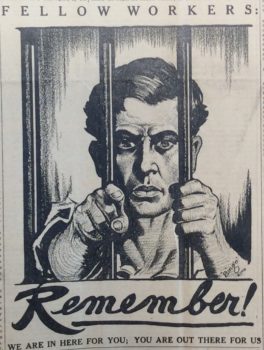I’ve written a few times about the work of podcaster Mike Duncan. He’s got a newer podcast called Revolutions, and I’ve been listening to the unit on the Russian Revolutions of 1905 and 1917.
Duncan reviews an early 20th century divide in the socialist movement that should feel eerily familiar to most readers. Namely, the socialist parties of Europe backed World War I! In Britain, France, Germany, et al., the socialist parties set aside socialist internationalism, claimed that nation comes before class, and endorsed the war.
Why?
How to Build and Wield Power
The reasons for this also ought to sound familiar! The socialist parties of Europe grew large enough to win seats in their national legislatures. The SPD in Germany, in particular, became a major player in national politics. But despite winning many elections, the parties weren’t yet large enough to win majorities and wield power on their own.
And therein lies the rub. They were big enough to win races, but not big enough to win majorities. Instead, they had to yield power to various forces to their political right: pro-war union leaders, progressives, and other groups not committed to socialist internationalism.
Let’s do a quick review. The parties built their brand and their recruiting models on the basis of winning seats in national legislatures. But to wield actual power, they had to make deep concessions to their political right. Those especially concerned the international elements of the movement. To gain power, socialist internationalists had to drop internationalism and defend the foreign policies of their own countries.
From there, it was off to the races. The socialist parties supported World War I as the price for playing politics. They gave up any coherent socialist internationalist vision. They gave up the Second International. And they turned toward class groupings within their own countries at the expense of working-class people elsewhere. Or, as we call it now, to social democracy. The parties become socialist in name only.
The DSA Today
The DSA of today could learn a few things here. It’s large enough to win seats in Congress. Not as many as the SPD, of course, but more than any other leftist movement in the U.S. However, it can win only as a part of a broader ‘progressive’ coalition. And it’s certainly not powerful enough to win majorities in Congress or even to form its own caucus.
So, what happens? DSA members like Jamaal Bowman serve in Congress and vote against socialist internationalist principles in order to stay in office. They can’t have both a seat in Congress and those principles. So, they pick one or the other. Bowman made his choice.
Again, sound familiar?
The socialist parties did much the same in World War I. And it tells the DSA something it hasn’t yet learned: building a powerful base through local and regional action must come before focusing on federal electoral campaigns. DSA members can run for Congress all they want, of course. But the national org isn’t yet ready to endorse and promote these campaigns.
It’s a big mistake to attempt to use federal elections as a shortcut to growth and power. It amounts to forcing the org to choose between giving up socialism or remaining small and irrelevant. Maybe the short term benefits of the electoral route sound nice. But it doesn’t lead to any place worth going.
